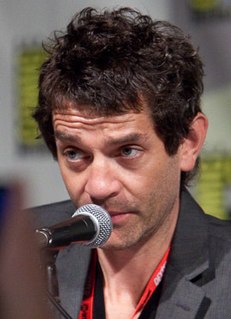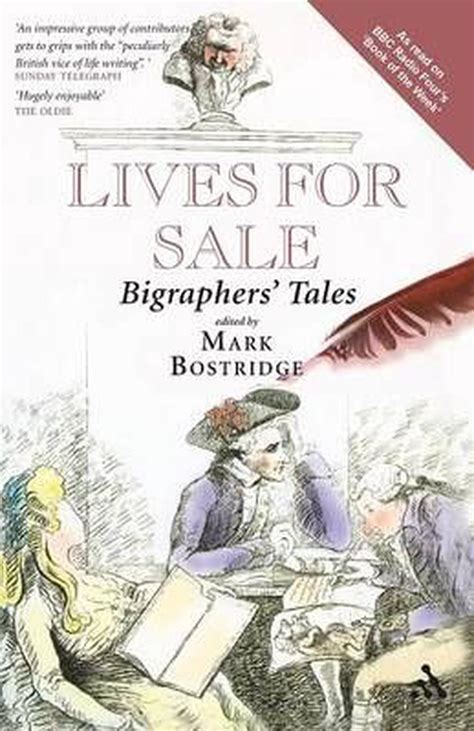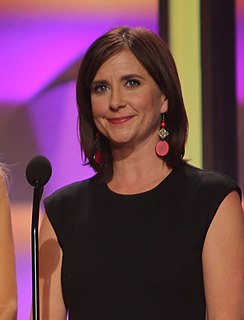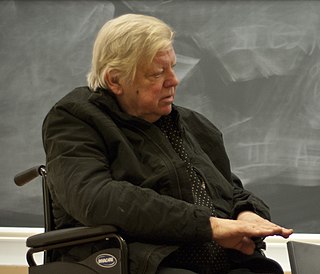A Quote by Lynne Tillman
I think I'm too indoctrinated. I'm going to use everything I can, and I think if I used an advertisement in that one, it would be yet another way to connect the current day with Wharton. Wharton has been perceived sometimes as being too upper class; Wharton was an extraordinary social thinker. As relevant today as anyone, so she uses some language that isn't current, but to me, I'm so happy about that because I get so bored with the 100 words that people mostly use.
Quote Topics
Related Quotes
There is a narrow class of uses of language where you intend to communicate. Communication refers to an effort to get people to understand what one means. And that, certainly, is one use of language and a social use of it. But I don't think it is the only social use of language. Nor are social uses the only uses of language.
This is a glorious biography ... The time is ripe for a new biography of Edith Wharton of this intimacy and on this scale ... Lee the biographer pursues her subject down every winding corridor, into every hidden passage and dark corner ... Her critical exploration of Edith Whartons work is dazzlingly assured ... A feat of exhaustive research, and finely tuned to Whartons creative achievement at the same time ... [Wharton] could scarcely have failed to be impressed by ... its artistic sympathy, its sonorous depths, and its soaring conception.
I think sometimes we can use spirituality as a vehicle to go closer to the things that frighten us and sometimes we can use it as a shield. I'm guilty of it too. I think spiritual words can do one or the other. Because when I hear people say, in a religion setting, 'Glory,' 'Praise the Lord,' 'Hallelujah,' but it doesn't mean anything, those are actually words that distance us from God, ironically enough.
I've got one grandson gone to MIT. Another grandson had been in the American school here. Because he was dyslexic, and we then didn't have the teachers to teach him how to overcome or cope with his dyslexia, so he was given exemption to go to the American school. He speaks like an American. He's going to Wharton.
Being a slow reader would normally be a deficiency; I found a way to make it an asset. I began to sound words and see all those qualities - in a way it made words more precious to me. Since so much of what happens in the world between human beings has to do with the inconsideration of language, with the imprecision of language, with language leaving our mouths unmediated, one thing which was sensuous and visceral led to, in the use of language, a moral gesture. It was about trying to use language to both exemplify and articulate what good is.
Reading a novel after reading semiotic theory was like jogging empty-handed after jogging with hand weights. What exquisite guilt she felt, wickedly enjoying narrative! Madeleine felt safe with a nineteenth century novel. There were going to be people in it. Something was going to happen to them in a place resembling the world. Then too there were lots of weddings in Wharton and Austen. There were all kinds of irresistible gloomy men.
I can see a day soon where you'll create your own college degree by taking the best online courses from the best professors from around the world - some computing from Stanford, some entrepreneurship from Wharton, some ethics from Brandeis, some literature from Edinburgh - paying only the nominal fee for the certificates of completion.
Architects are today routinely indoctrinated against the dumb box. Even advertising urges us to "think outside the box." Why? Because it is thought we all hate the box for being too dumb, too boring, and we want to escape it. If we do escape, by buying the advertised product, we usually find ourselves inside another dumb box populated by boring people just like us. It is clearly possible to live an extraordinary life inside a dumb box. Question: is it possible to lead an extraordinary life in anything other than a dumb box?






































